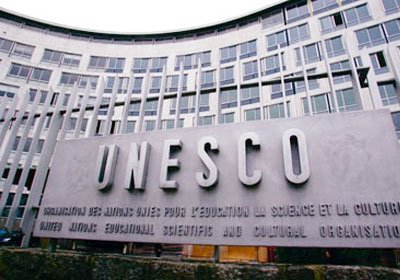VMU to Launch Program in Cooperation with IBE-UNESCO

The International Bureau of Education (IBE-UNESCO) launched the first postgraduate Certificate In Curriculum Design and Development for Central-East Europe Central Asia together with VMU in Lithuania on 28 November. This will be followed by UNESCO IBE’s first postgraduate Diploma for the Arab States in the United Arab Emirates (UAE) on 4 December.
These build on the success of the curriculum accredited Qualifications (Diploma and Master’s) launched in 2010 in partnership with universities in Africa (AFR) and Latin America (LAC) and rolled out to over 63 countries. The Hamdan Bin Rashid Al Maktoum Award for Distinguished Academic Performance has made significant contributions to fund the programs. These qualifications are tailor-made training opportunities to enhance the capacity of all professionals involved in achieving Sustainable Development Goal 4 and the Education 2030 framework: “To ensure inclusive and equitable quality education and promote lifelong learning opportunities for all.”
“VMU policies of citizenship, culture and education is inseparable from the core values of UNESCO, as a reaction to the ongoing changes and global economic, environmental and social issues. In order to prepare not only highly qualified specialists but also global citizens, higher education workers and educators face challenges of professional and personal competences”, VMU Vice-Rector for International Relations Prof. Ineta Dabašinskienė pointed out one of the issues which is hoped to be solved in collaboration with UNESCO IBE.
Renato Opertti, who coordinates the qualifications on behalf of IBE-UNESCO, the leading Institute of UNESCO specialising in the field of curriculum, says, “Good education reforms and good education processes are sustained by good curricula proposals. That’s why curriculum is at the heart of education reform and policies”. He continues, “Our qualifications promote training and capacity development in curriculum matters ensuring links between teacher education, curriculum development, smart learning and assessment.”
The intention is to enhance competencies in understanding, leading, researching, planning, designing, implementing, monitoring and evaluating the curriculum, as well as in decision-making about curriculum and education in general. The methodology is highly interactive starting with compulsory face-to-face sessions – comprising workshops, roundtables, school visits and conferences animated by distinguished international and national experts – and online learning sessions and activities over a period of nine months.
The program is mainly addressed towards policymakers, planners, curriculum specialists and developers, educators, principals, supervisors, teacher trainers, teachers and researchers. The benefits are acknowledged by one of the graduates of the Africa diploma in 2012, “This course has given me a lot of knowledge about work I should do to bridge the gap between the curriculum designed by curriculum developers, and the actual implementation in the classroom…that is, the knowledge of the teachers and which methodology, teaching, and learning processes are required to meet the needs and expectations of the learners and the community at large.”
The Certificate for Central-East Europe-Central Asia is a partnership with Vytautas Magnus University, Kaunas, Lithuania within its existing Master’s in Educational Management. The first Arab Diploma in Curriculum Design and Development is a partnership between Hamdan Bin Mohammed Smart University (HBSMU) and the Section of Teacher’s Development (ED/ESC/TED).
Curriculum: fundamental to create lifelong opportunities for all
The curriculum is one of the most fundamental tools for bridging the gap between education and development. However, to date, there has been little normative guidance on what constitutes a well-balanced responsive curriculum at different levels of education. IBE-UNESCO is a global centre of excellence in curriculum, setting the standards and guidelines for what must be regarded as quality curricula.
For countries to benefit from the true development value of the curriculum, there is a vital need to move beyond traditional concepts, where the curriculum is viewed simply as a collection of syllabi, study plans, and textbooks. IBE-UNESCO’s work with countries involves deepening the understanding and paradigm shifts in curriculum by working to explicitly articulate the developmental value of curriculum to democratize learning and to create lifelong opportunities for all.
UNESCO IBE and VMU certificate program: A Training Session
For further questions, please contact:
Ms. Lili Ji, Assistant Programme Specialist, IBE-UNESCO: l.ji@unesco.org
Ms. Reem Asqoul, Coordinator of the Diploma, Hamdan Bin Mohammed Smart University:









Comments
Dear Mr. Opertti Namaste and Warm greetings from Nepal! Bala Raju Nikku is my name and i am interested in social work curriculum development for University level. I have been involved in curriculum development with Universities in Nepal and am interested in doing a course : PG certificate in Curriculum Design and Development being offered by IBE through different Universities. May i know which are the universities can offer this course in Asia? Thanking you in advance. Kind Regards, Bala Raju Bala Raju Nikku, MSW, Ph.D Visiting Sr. Lecturer, Social Work Program School of Social Sciences Universiti Sains Malaysia(USM) 11800 Penang, Malaysia www.soc.usm.my Ph: 0060- 4 - 653 5387/ Fax : 00-60-4 -6570918/ mobile: 00-60-16-4758115 & Founding Director, Nepal School of Social Work www.nepalschoolofsocialwork.org http://nepalschoolofsocialwork.org
Good evening. I wish to be considered for a masters degree in curriculum design. Do you offer scholarships? Kind regards